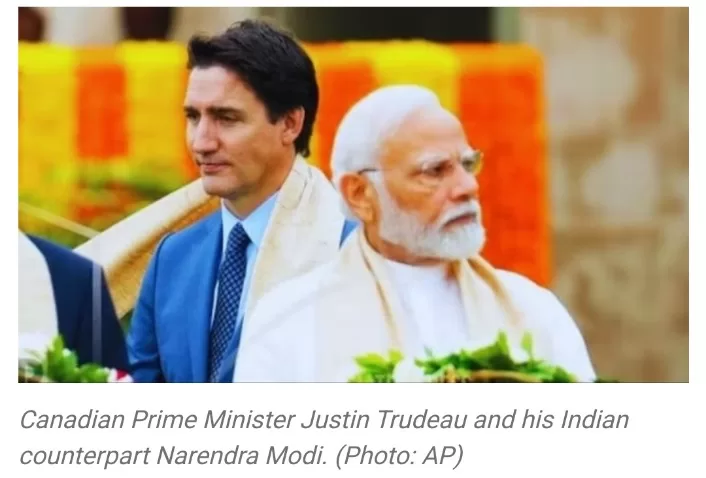In the aftermath of the tragic assassination of Hardeep Singh Nijjar and Prime Minister Justin Trudeau’s comments linking India to the incident, diplomatic relations between Canada and India have been strained. Nevertheless, recent polling results suggest that the majority of Canadians emphasize the significance of preserving robust economic ties with India, irrespective of the Nijjar incident.
A survey conducted by Nanos Research for CTV reveals that a significant 59 percent of Canadians advocate for either maintaining or fortifying their nation’s trade relations with India. In contrast, only 16 percent favor reducing trade with India, while 25 percent of respondents remain undecided. This poll was conducted between October 1st and October 4th.
In addition to gauging public sentiment, Nanos Research also delved into Canadians’ political inclinations. If a hypothetical election were held today, the Conservative Party of Canada, led by Pierre Poilievre, appears poised to attain power, securing 184 seats—an impressive 15-seat surplus for a majority and a remarkable gain of 65 seats compared to the 2021 elections. Meanwhile, Trudeau’s Liberals would find themselves with a mere 90 seats—a significant decline of 70 seats from their prior performance. Interestingly, the New Democratic Party (NDP), under the leadership of Jagmeet Singh, seems to be making strides, on track to secure 44 seats—an impressive increase of 19 seats from the previous election.
However, it is important to underscore that these electoral outcomes are purely hypothetical. Trudeau is unlikely to call for an election at this juncture, as he still has a solid two years remaining in his term. The Liberals are banking on the passage of time to regain support through campaign-style initiatives addressing housing and affordability, rather than risking an immediate election. They maintain faith that time is on their side, even if not everyone is currently in their favor.
In the midst of India’s ultimatum, which demands that Canada reduce two-thirds of its diplomatic staff in New Delhi by October 10th, it has come to light that Canada has proactively relocated some of its personnel from India to Southeast Asia. According to Canadian media reports, several lower-level Canadian diplomatic staff stationed outside of Delhi have been relocated to Kuala Lumpur and Singapore over the past few weeks. This development, as reported by CBC and CTV, mirrors the recent diplomatic tensions between the two nations and adds to the complexity of the ongoing situation.
It is worth noting that Canada’s decision to relocate its diplomatic personnel predates India’s ultimatum and was made with security threats in mind as relations between the two countries soured.







